|
Canon EF 28-300mm f/3.5-5.6 USM L IS - Review / Test Report - Analysis |
|
Lens Reviews -
Canon EOS (APS-C)
|
|
Page 2 of 3

Distortion
The level of distortion is very well under control for a 10.7x
zoom lens. At 28mm distortion is most pronounced with a medium
degree of barrel distortion (1.77%). At all other tested focal
lengths there is only marginal pincushion distortion (around 0.5%).
28mm:
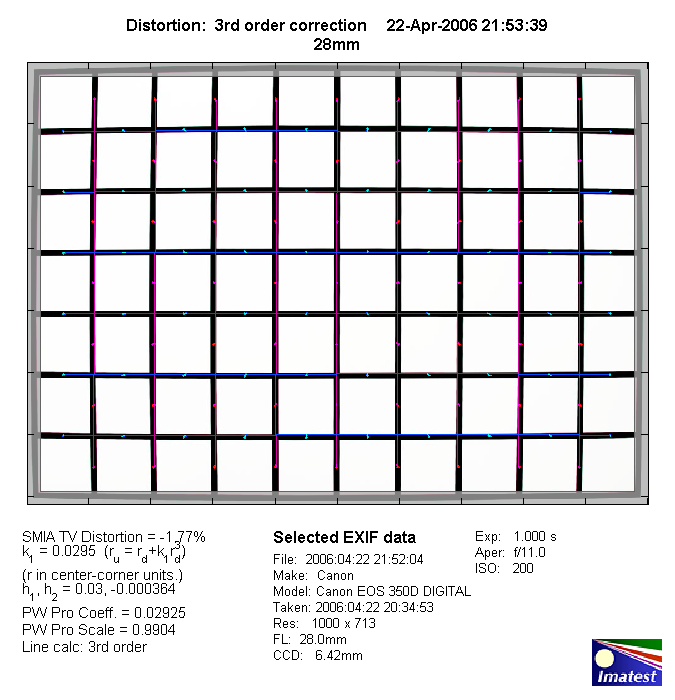
50mmmm:
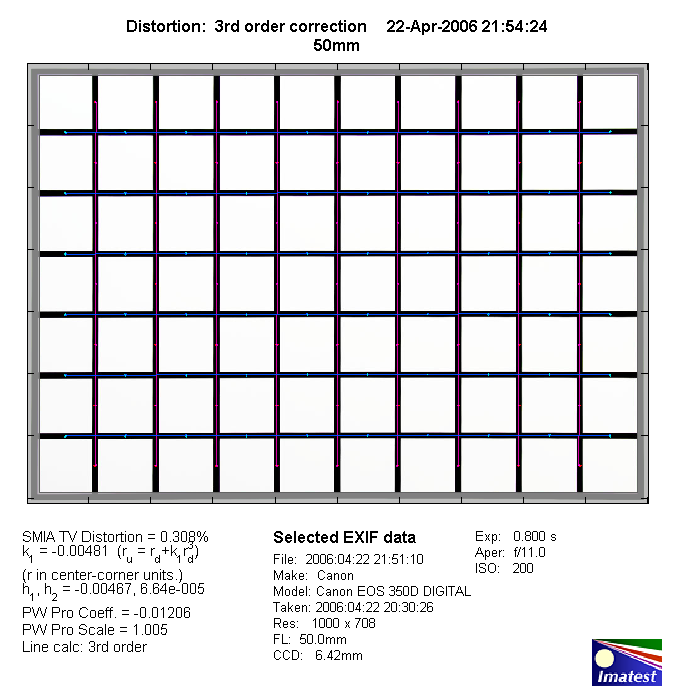
100mm:
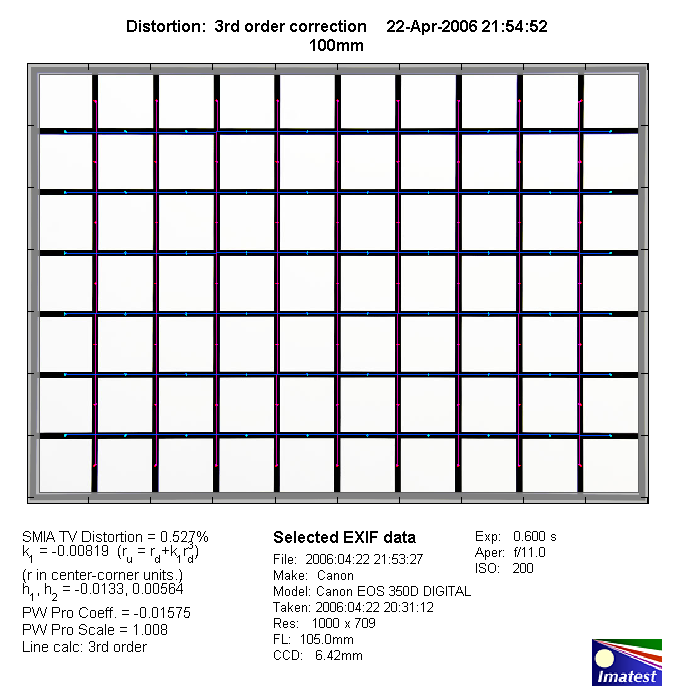
200mm:
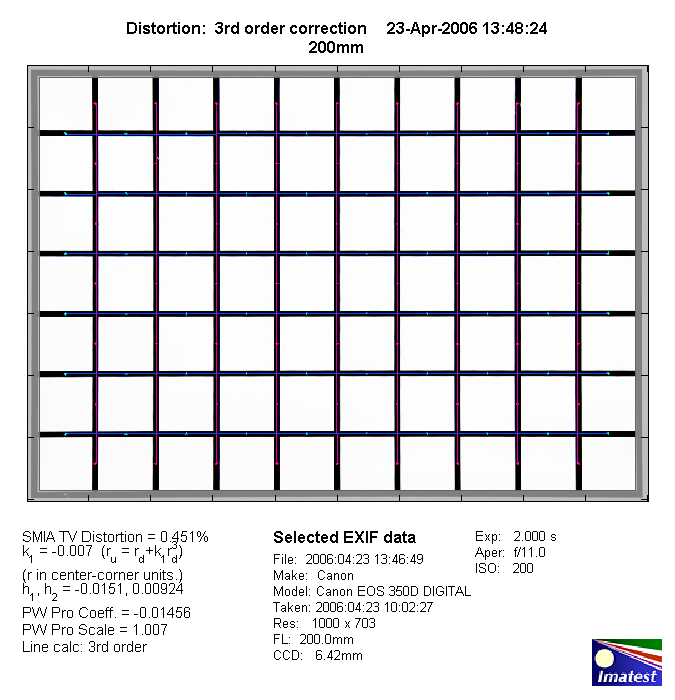
300mm:
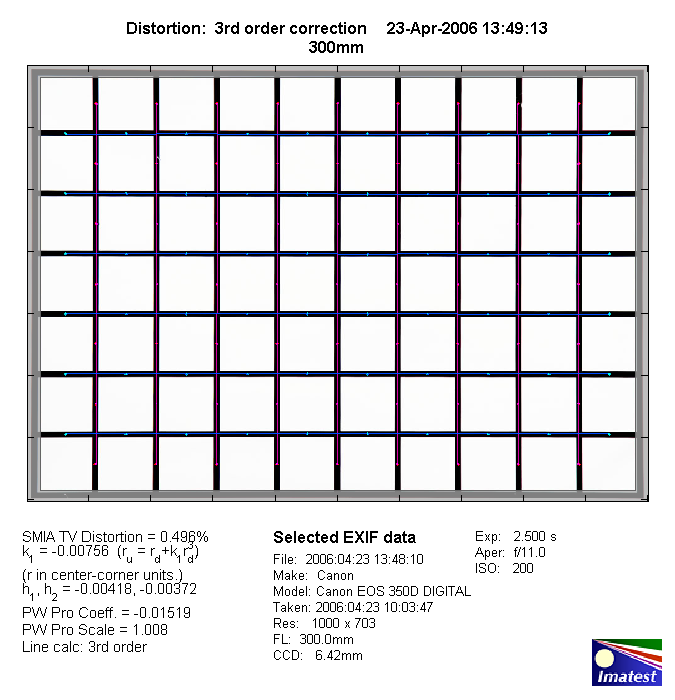
As usual you should expect more distortions towards closer focus distances.
Vignetting
The EF 28-300mm f/3.5-5.6 USM L IS is a full frame lens so it can take advantage
of a sweet spot effect on APS-C DSLRs and vignetting is indeed almost insignificant.
It's most pronounced at 300mm f/5.6 but at 0.5EV it's an ony an issue in very
critical scenes.
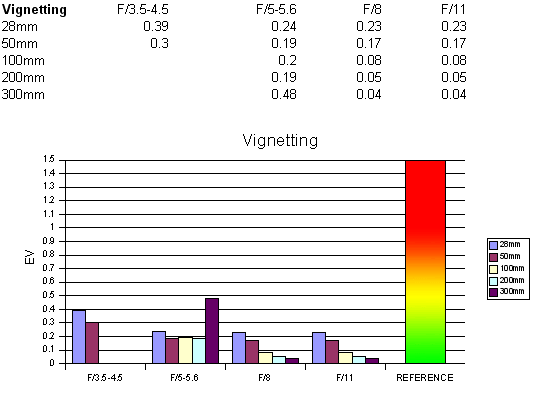
MTF (resolution)
Regarding its 10.7x zoom ratio the EF 28-300mm L IS is a lens of compromises
and regardless of all efforts it cannot be a stellar performer regarding
resolution. However, the lens manages to keep the quality on a very respectable
level throughout the zoom range. The resolution figures are surprisingly
high at 28mm where the center quality is excellent straight from the max.
aperture. The border quality follows on a good to very good level without
a major gain in quality by stopping down. The sweet spot of the lens is around
50-100mm where the center and border quality is more harmonious. At 200mm
and slightly more so at 300mm there's a slight drop in quality but without any unpleasant
surprises. Even at 300mm the center is very good at f/5.6 followed by good
borders and stopping down lifts the performance a bit further.
All-in-all a very impressive performance but naturally not comparable to
the best lenses at the respective native focal lengths.
Please note that the MTF results are not directly comparable across the different systems!
Below is a simplified summary of the formal findings. The chart shows line widths per picture height (LW/PH) which can be taken as a measure for sharpness.
If you want to know more about the MTF50 figures you may check out the corresponding Imatest Explanations
Chromatic Aberrations
Chromatic aberrations (color shadows at harsh contrast transitions) quite
well under control for such a lens with a maximum around one pixel of the
average at the image borders at the extreme ends of the zoom range.

|